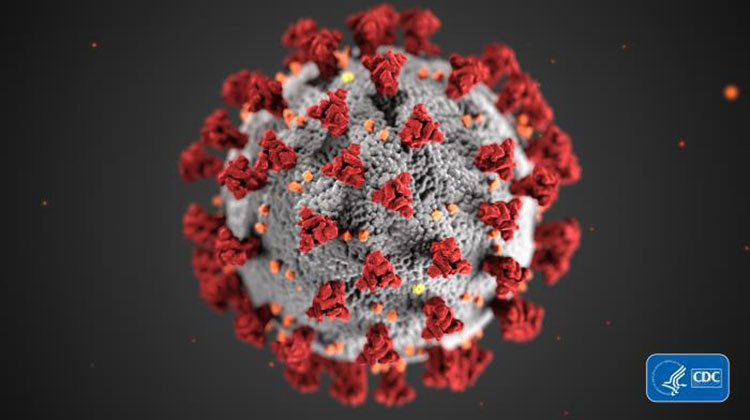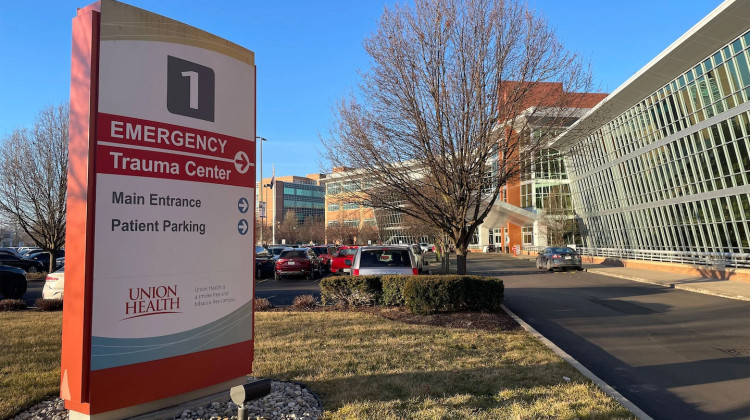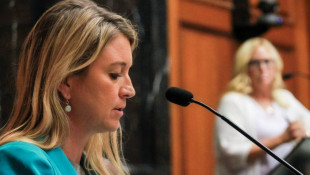New weekly COVID-19 hospitalizations have been trending up in Indiana for the fourth straight week, according to the Centers for Disease Control and Prevention data.
The Indiana Department of Health COVID-19 dashboard also shows an uptick in the seven-day average of COVID-19 infections, hospitalizations and wastewater concentration of SARS-CoV-2 during the week of Aug. 13 compared to the prior week. But there was no change in the seven-day average of COVID-19 deaths in that period.
Indiana COVID-19 numbers mirror national data and forecasts. On Tuesday, the CDC said that new hospitalizations are expected to increase over the next several weeks.
This comes after a new COVID-19 variant called BA.2.86 was detected in countries around the world including Denmark, Israel and the United States, where two cases have been identified so far, according to the CDC.
However, there is no data to suggest that BA.2.86 is behind the acceleration of COVID-19 cases in Indiana.
The CDC said that this variant is notable because it has multiple mutations and genetic differences compared to previous versions of the virus. It may be more capable of evading immune defenses in people who have previously been infected by COVID-19 or who have received the vaccines. But at this point, there is no evidence suggesting that BA.2.86 causes more severe illness.
“Based on what CDC knows now, existing tests used to detect and medications used to treat COVID-19 appear to be effective with this variant,” the CDC said in a Risk Assessment Summary on Wednesday. “Scientists are evaluating the effectiveness of the forthcoming, updated COVID-19 vaccine. CDC’s current assessment is that this updated vaccine will be effective at reducing severe disease and hospitalization.”
Nationwide, weekly COVID-19 hospitalizations have been trending up for five consecutive weeks with an increase of nearly 22% this past week, according to the CDC.
A new COVID-19 booster is in development and should be available to the public in late September or early October.
The CDC hasn’t released its updated recommendation for COVID-19 vaccines for 2023 but the agency currently recommends that everyone ages 6 years and older receive an updated (bivalent) mRNA COVID-19 vaccine, regardless of whether they previously completed their (monovalent) primary series.
People who are at risk for severe COVID-19 should get a booster as soon as it’s available in the fall, said Dr. Amesh Adalja, an assistant professor at the Johns Hopkins University Center for Health Security.
“When we see severe disease from COVID-19, it's individuals that are older, or who have some other comorbid conditions,” Adalja said. “So if you're older, if you're obese or overweight, you have any medical problems, if you're pregnant, all of those people really should run to get the new COVID-19 vaccine”
Dr. Paul Offit, the director of the Vaccine Education Center and a physician in the Division of Infectious Diseases at Children's Hospital of Philadelphia, said that it’s reasonable for people to wait to get the new booster vaccine as soon as it is available in the fall.
“SARS-CoV-2 circulates and causes hospitalizations throughout the year but the guess is that [the virus] will enter the pantheon of winter respiratory viruses,” he said.
The virus is likely to cause most of its damage during the peak of the winter, which is when people –– especially those who are at high risk –– should ensure they’re updated on all their COVID-19 shots as well as the flu shot, Offit said.
WFYI’s health reporter Alex Li contributed reporting.
You can reach Managing Editor Farah Yousry at fyousry@wfyi.org.
 DONATE
DONATE






 View More Articles
View More Articles


 Support WFYI. We can't do it without you.
Support WFYI. We can't do it without you.